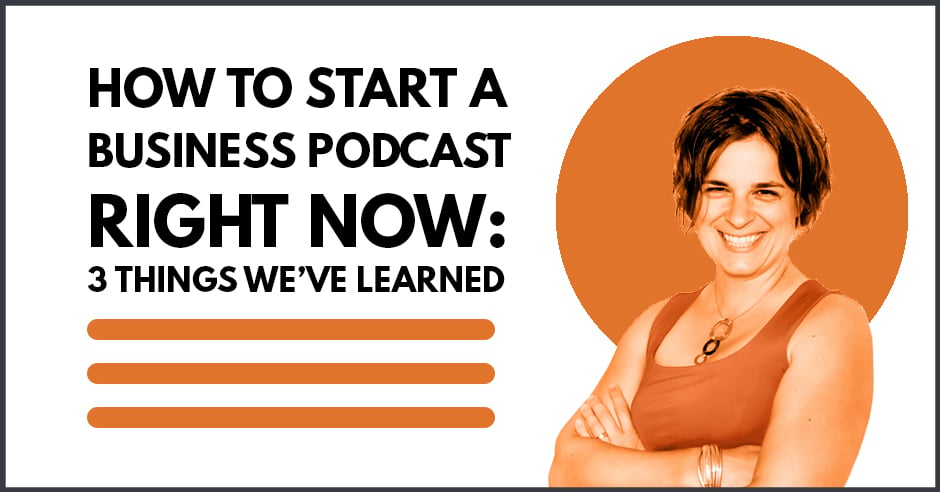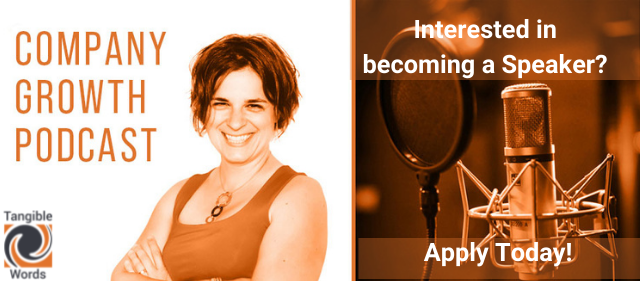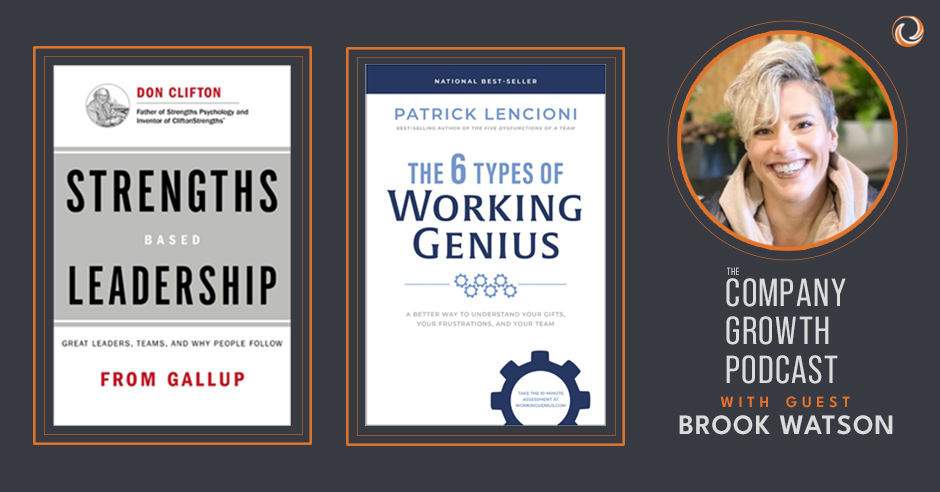SHARE
How to Start a Business Podcast: 3 Things to Learn

Tangible Words has recorded and released two seasons of The Company Growth Podcast now and we’ve come a long way from our first few episodes! After two seasons, here’s what we learned about podcasting, for anyone who is in the same position now as we were in Season 1 in early 2020. If you’re looking for a sales booster, a way to share your message, you can find one with a podcast.
Tip #1: How to Start a Business Podcast? Jump Right Into It
You’ll learn so much by doing. Of course, you want to plan and develop your podcast over time, do research on what your target audience wants to hear, release an episode and see what works best. That’s all important. But the first tip is to just jump right in and record your first episode, even if it’s just you talking to yourself. If you talk with knowledge about an area of your expertise, there’s definitely an audience for it. And what better way to prove to a lead that you know what you’re talking about then talking about what you know.
You’ll be amazed at what you can discover works and doesn’t work just by recording a test episode and listening to it. Record one right now! If you’re reading this post, chances are you’ve at least thought about how to start a business podcast, so use those starting ideas and go for it.
Tip #2: Invest in a Good Mic But You Don't Have to Be an Audio Expert
Audio quality is definitely important for any podcast - after all, the whole medium is audio - but you’d be surprised at the quality of many headsets you may already be using for working from home, and there are many free or inexpensive recording programs you can use to record your podcast on (like Audacity). Of course, knowledge of good audio recording technique will only be helpful, we’re just saying not to let a lack of experience stop you from getting started on your podcast.
Tip #3: Programs and Services We Recommend for Your Business Podcast
Soundtrap: this is the program we use to record the podcast. It’s quick to learn and a little more intuitive than some of the more hardcore recording programs out there. Also, it allows you to upload your podcast directly to Spotify, and comes with sound effects and music tools that we used extensively in the first season of the podcast. One of Soundtrap’s most useful features though is a speech-to-text tool that can quickly create a script of your podcast, which you can edit as if it were a word processed document. This is so handy for podcasters, and we love it.
Anchor: Originally, we used SoundCloud to host the podcast, but found that we quickly ran out of space in the base version of SoundCloud before we had even finished our first season. SoundCloud is a great platform but it’s much better for hosting songs, which always take up less space than podcast episodes (unless your songs are 20-minute improvisational jazz solos).
So we moved our podcast hosting to Anchor, which is also free but offers much more space, and it automatically uploads each episode of your podcast to Apple Podcasts, Breaker, Google Podcasts, Pocket Casts, RadioPublic, and Spotify. Anchor also gives you analytics on your podcast. They aren’t the most detailed analytics, but any data is still helpful.
Maybe the best part of Anchor though is that it is incredibly easy to use and intuitive, which is helpful if you’ve found your head spinning from trying to learn about RSS feeds.
YouTube: YouTube is still much more friendly to video content than to podcasts, but the analytics on YouTube are what we really appreciate, and the degree to which the public is already comfortable with the platform and knows how to use it. We’ve found it’s a lot easier for the average person to understand how to subscribe to a YouTube channel, share a YouTube video, or comment on a YouTube video than it is for them to leave a review on Apple Podcasts, for example. The audience is already intimately familiar with YouTube and how it functions, so use that to your podcast’s advantage.
Hey, and once you’ve got your podcast up and running, why not…
Cross Market Your Podcast as a Guest on the Company Growth Podcast
Topics
- Content Creation (297)
- Growth-Driven Design Websites (167)
- Inbound Marketing (147)
- Sales Growth (133)
- Tangible Words (111)
- Search Engine Optimization (85)
- Social Media Marketing (83)
- Hubspot (78)
- Blogging for Business (75)
- Economic Development (64)
- Events & Training (60)
- Company Growth Podcast (49)
- Manufacturing (47)
- Tourism (46)
- Email Marketing (42)
- Case Stories (40)
- Testimonials & Client Feedback (36)
- Education and SaaS (23)
- Google (21)
- Careers (19)
- Inbound Marketing Agency (19)
- Cool Companies (18)
- FAQ (16)
- Alysha Dominico (13)
- Associations (7)
- Food and Beverage (7)
TW Blog Sign-Up
Learn more about how to grow your business and improve your sales team process.




2%20(blog%20dimensions)(alterntate%20text).jpg)

(actualblogsize).jpg)
